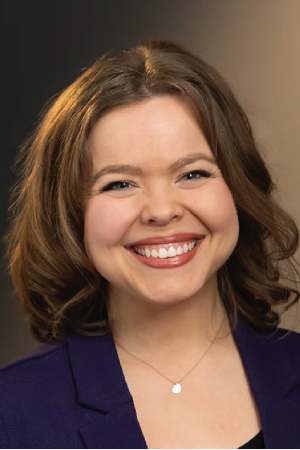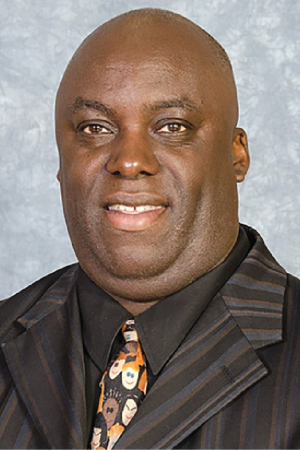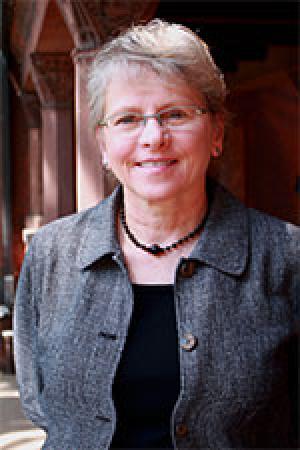Start your journey
Program details
In this program, you will hone an interdisciplinary set of skills for designing and implementing effective evaluation strategies. Through advanced research techniques, you will be able to quickly and astutely discern issues in processes and systems, develop incisive solutions to bottlenecks and roadblocks, and manage organizational paradoxes with confidence.
You will gain experience in a full array of quantitative, qualitative, and mixed methods, and you will sharpen your skills in designing evaluation studies, data collection, data analysis, and how to effectively communicate results to improve policies and programs. Through new and ongoing organizational partnerships, you will work in real-life evaluation cases and get hands-on experience.
Doctoral students in Evaluation Studies gain the skills and experience to:
- Teach courses in evaluation and research methods.
- Serve as lead evaluators and consultants on evaluation and research methodology and program design.
- Measure the economic and social impact of public policies and programs.
- Communicate the value, vision, possible strengths and potential flaws of a project with clarity and precision.
- Conduct original research on evaluation theory and practice in a range of contexts.
Application deadline
December 1 for a Fall semester start.
Fall semester start only. Applicants may only apply to one OLPD track.
- Applications are not complete until all required materials and fees have been received. If anything is missing, your application may not be considered.
- Applications are processed by the Graduate School. A decision for admission notice will be emailed to you once your application is carefully reviewed by the department's admission committee and your transcripts and any credentials (test reports, diploma copies, etc.) are authenticated by Graduate School officials.
Degree: Master's degree
GPA: 3.0 undergraduate, 3.5 graduate
GRE: Do not submit GRE scores, as they will not be considered in the review process.
TOEFL/IELTS Scores (Not required for U.S. students):
- TOEFL: Internet based = 79 or above (21 writing/19 reading)
- IELTS = 6.5
- Refer to this page for all English language proficiency requirements.
Detailed application instructions
Click here to access the online application for admission.
Required fields in the application for admission are: Personal Information, Application Information, Educational Background, Languages, Awards & Activities, Employment/Residence Information, Financial Support, Applicant Statements #1 & #2, Recommendation Letters (limit 2), and Resume or CV. All other fields or application materials are optional, but will be taken into consideration if submitted.
Fees:
Review information about application fees here. The University of Minnesota Graduate School does not offer application fee waivers, reductions, or refunds.
Transcripts: Unofficial transcripts or academic records should be uploaded directly to the online application. Please do not mail in paper copies of your transcripts, there is no need for official transcripts or academic records for initial review. If you are admitted, the University will then request official copies of this material. Click here for more information about transcripts and credentials.
GRE scores are not only not required, they are not considered for applications to this program.
Statement #1, Personal Statement (required): Please provide a statement outlining your immediate educational and long-range career objectives in relation to your chosen field. If there is a particular faculty member with whom you wish to study, please give that person’s name and explain why you want to study with that person. You may also wish to include other information, such as any undergraduate research experience, internships, or other experiences you may have had to document your preparation for advanced study in your chosen field. If you are applying for the Ph.D.—CIDE/Leadership for
Intercultural and International Education (LIIE) or the Ph.D—EPL/Executive cohort programs, indicate this in your statement as well. [Please do not exceed two pages.]
Statement #2, Diversity Statement (required): Enrolling and graduating a diverse student body is central to the University of Minnesota’s mission. Please write a statement that identifies the distinctive qualities, characteristics, and life experiences you would contribute to your graduate program and to the education of fellow students at the University of Minnesota. You may wish to include examples that address your contribution to the diversity of the student body and illustrate your motivation to succeed by setting high standards for accomplishing intellectual and other goals, overcoming obstacles to achievement, and/or helping others to gain access to the resources necessary for success. [Please do not exceed one page.]
Statement #3: Extenuating Circumstances (optional): If your grades and/or test scores are not strong, and you would like to provide an explanation, please do so. [Limit 1200 characters.]
Two letters of recommendation (required). The strongest recommendations typically come from current or former professors who can assess your potential for graduate work. Other recommenders, such as employers, are also acceptable.
English Language Test Scores (TOEFL, IELTS, etc.) Click here for more information about TOEFL Scores.
Common Ground Consortium Fellowship: If you wish to be considered for a Common Ground Consortium fellowship for African-American students indicate this by uploading your statement in the "Program Supplementary Information -Upload #1" section. The statement should briefly address the following: Given that the UMN is a public land grant institution, it is imperative that CGC scholars can both benefit personally from their membership in the program as well as further the university’s founding mission to contribute to scholarship that benefits the local and greater communities. Please describe how your participation as a CGC scholar would do the following: (a) enhance your graduate student experience, (b) prepare you for your chosen career, and (c) benefit the public.
Additional Requirements for International Applicants
International students who will have completed 16 semester credits (within the past 24 months) in residence as a full-time student at a recognized institution of higher learning in the United States before entering the University of Minnesota are exempt from the testing requirement but may be asked to take locally administered English tests after arrival on campus. Click here for more information about English language proficiency requirements.
If a graduate student in an OLPD program has become inactive they must follow the readmission procedures.
Whether you seek reactivation after accidentally being discontinued this term or want to return after a long absence these are the steps needed to re-apply.
- Complete the proper online readmission application.
If you have been away from the program less than five years use the Express Readmission Application and email it to olpd@umn.edu. All others must submit the Online Application for Readmission
- Once received, the department will forward your application to the appropriate admissions committee. Readmission decisions are normally determined by the program’s admissions committee, not any one individual faculty member.
Readmission is never guaranteed. Decisions for readmission are based on a review of previous progress toward degree completion, the proposed timeline for completion, the availability of faculty resources, and/or any additional application materials they may request from you. Individual programs/tracks reserve the right to readmit students under the current graduate program requirements, rules, and guidelines. They may also request an applicant to provide additional information prior to making a decision.
- Once the committee makes their recommendation, the department’s DGS will sign off on the decision and forward the result to the central Graduate Admissions Office for processing. Once processed, you will be notified of the decision.
Individual department programs and tracks reserve the right to require readmitted students to retake coursework if they deem it appropriate. Readmitted students are also required to abide by current time-to-degree policies as determined by the University, which may differ from the policy in place when they first started the degree program.
Individuals seeking readmission to the Ph.D., Ed.D., and M.A. program tracks in the former EDPA, WHRE, and WCFE majors can only reapply to the appropriate program track under the Organizational Leadership, Policy, and Development (OLPD) major name.
If you have any questions regarding the application process, please reach out to olpd@umn.edu.
Coursework
72 credits (48 credits of coursework + 24 thesis credits) completed in 3-5 years for full time students.
OLPD departmental core
- OLPD 8011—Doctoral Research Seminar I (1 cr) [Fall term of first year]
- OLPD 8015—Inquiry Strategies in Educational and Organizational Research (3 cr) [Take Spring term of first year]
- Quantitative research course (3 cr) selected with approval of advisor
- Qualitative research course (3 cr) selected with approval of advisor
- Additional methods courses (6 cr) selected with approval of advisor
Evaluation studies program core
Students must take OLPD 8596 twice in two different semesters for 3 credits each time.
- OLPD 5501—Principles and Methods of Evaluation (3 cr)
- OLPD 8502—Program Evaluation Theory and Models: Qualitative and Quantitative Alternatives (3 cr)
- OLPD 8595—Evaluation Problems (3 cr)
- OLPD 8596—Evaluation Internship I (3 cr)
- OLPD 8596—Evaluation Internship II (3 cr)
Additional coursework and optional concentrations
Minimum of 17 credits required. These credits can be used to meet the requirement that a minimum of 12 credits be taken outside the ES track or for a minor. Courses not specifically listed should have advisor approval.
Optional concentrations
Students enrolled in this program may choose to focus their elective courses within one of seven areas of concentration: public administration, public health, social work, human resources, higher education, K-12 education, or international projects. Students must complete 12 credits of coursework within the respective concentration area. Courses are selected in collaboration with the student's advisor(s) and require advisor approval. Sample course options in these areas follow, but this is not an exhaustive list:
Public Administration
- PA 5002—Introduction to Policy Analysis
- PA 5003—Introduction to Public Financial Analysis & Management
- PA 5101—Management and Governance of Nonprofit Organizations
- PA 5011—Dynamics of Public Affairs Organizations
- PA 5012—Politics of Public Affairs
Public Health
- PubH 6050—Community Health Theory and Practice I
- PubH 6051—Community Health Theory and Practice II
- PubH 6045—Skills for Policy Development
- PubH 6078—Public Health Policy as a Prevention Strategy
- PubH 6102—Issues in Environmental and Occupational Health
Social Work
- SSW 5051—Human Behavior and the Social Environment
- SSW 5101—Historical Origins and Contemporary Policies and Programs in Social Welfare
- SSW 5562—Global Social Work and Social Development
- SSW 5810—Grief and Loss
- SSW 5904—Facilitation and Conflict Management
Human Resources
- OLPD 5801—Survey: Human Resource Development and Adult Education
- OLPD 5201—Strategies for Teaching Adults
- OLPD 5605—Strategic Planning through Human Resources
- OLPD 5607—Organization Development
Higher Education
- OLPD 5001—Formal Organizations in Education
- OLPD 5080—Special Topics: Organizational Leadership, Policy, and Development
- OLPD 5704—College Students Today
- OLPD 5721—Race and Ethnicity in Higher Education
- OLPD 5724—Leadership and Administration of Student Affairs
K-12 Education
- EPSY 5157—Social & Developmental Psychology of Education
- EPSY 5114—Psychology of Student Learning
- PSY 5205—Applied Social Psychology
- OLPD 8302—Educational Policy Perspectives
- OLPD 5048—Cross-Cultural Perspectives on Leadership
International Projects
- OLPD 5121—Educational Reform in International Contexts
- OLPD 5048—Cross-Cultural Perspectives on Leadership
- MDP 5002 Program Development Workshop
- MDP 5005 Qualitative Methods for Development Practice
- PA 5151 Organizational Perspectives on Global Development & Humanitarian Assistance
- PA 5501 Theories & Policies of Development
Thesis credits (24 credits)
All Ph.D. students are required to register for 24 semester thesis credits (OLPD 8888) after completing the preliminary oral exam. These must be taken over two or more terms.
Tuition
Visit the University’s tuition page for tuition information. Information relevant to this program is found in the College of Education and Human Development section of the page.
CEHD Fellowships, scholarships, assistantships, and grants for graduate students
As a graduate student in CEHD, you may be eligible for fellowships, grants, and scholarships from the University of Minnesota, from our college, and from your academic department. Get more information on funding opportunities!
University Funding Opportunities:
Refer to the University of Minnesota Graduate School's funding page, specifically the page on fellowships for prospective / incoming students. Questions about University funding opportunities should be directed to the Graduate School —612.625.7579, or gsfellow@umn.edu
CEHD Funding Opportunities:
Refer to CEHD funding opportunities. Questions about college and department-level funding for this program should be directed to Jeremy Hernandez, Graduate Program Coordinator for the Department of Organizational Leadership, Policy, and Development: herna220@umn.edu.
Financial aid
Financial aid for your graduate program works a little differently than financial aid at the undergraduate level. It’s important to know the differences and explore your options. Check out this One Stop link for more information on eligibility, required steps, and timelines.
Contact us
If you simply have a question and would like someone to reach back out with information, please complete our request information form.
Our graduates say...
Work with globally-recognized faculty and affiliates
Doctoral students in our evaluation studies program are mentored by faculty and affiliates who are recognized globally for their broad experience and deep subject knowledge.
Questions?
We’re here to help. Get in touch with our Graduate Studies Office through the request information form or contact our staff at olpd@umn.edu.








